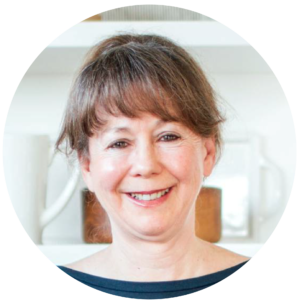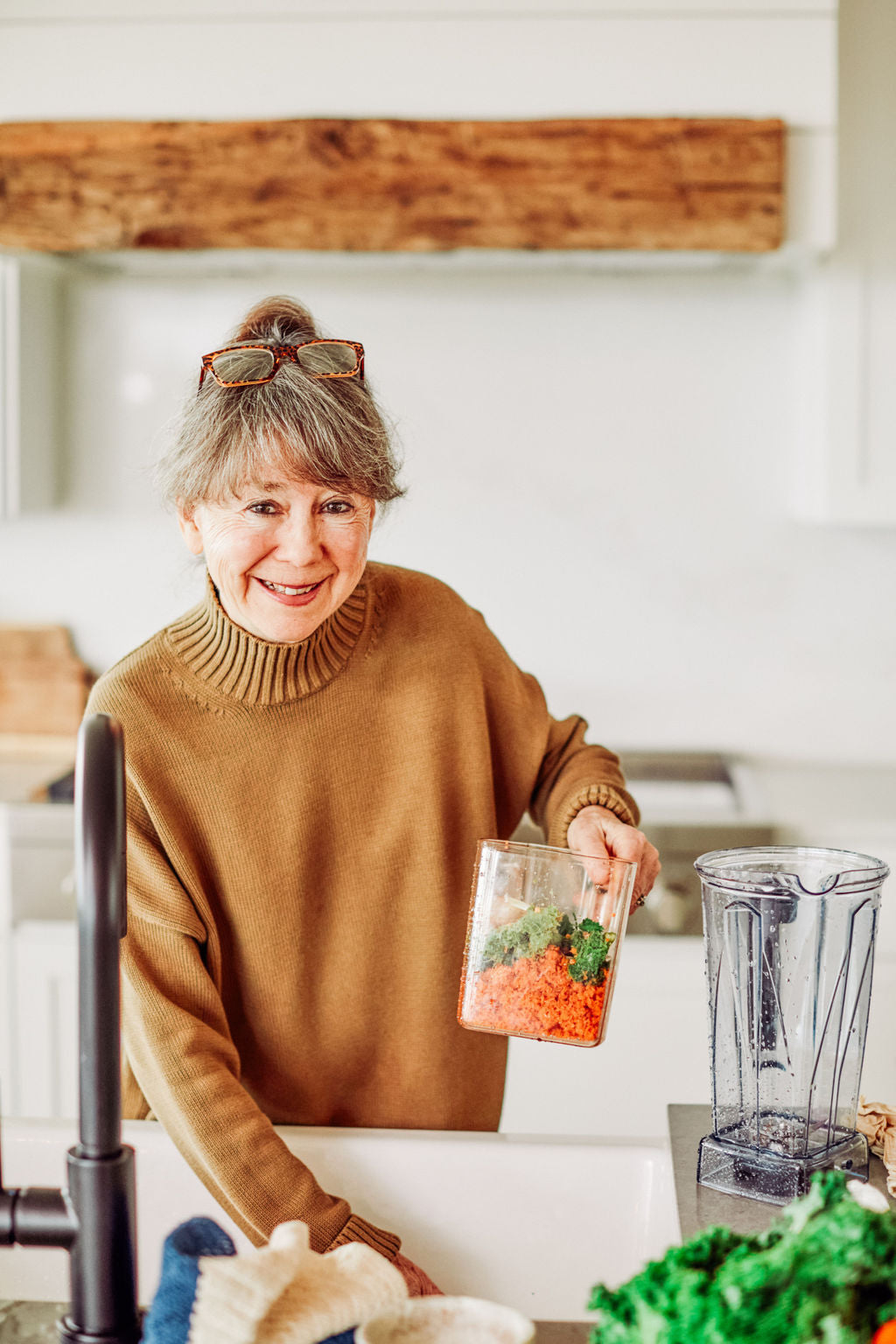How To Use Food As Medicine To Heal

The Food We Eat is Foundational to Health
Healthy eating is not about strict limitations. It is about eating a wide variety of real food, feeling good and having a lot of energy.
Unfortunately, the Standard American Diet (SAD) is nutrient-depleted, acid-forming, and laden with sugar and additives. In a land of plenty, we are starving nutritionally.
A majority of what many Americans eat is not real food, and the more the body has to compensate for missing nutrients and deal with anti-nutrients (chemicalized processed foods), the more optimal health is compromised.
Just as using diesel fuel to power a car designed to run on premium gas results in poorer performance, so also the body, when made to function on “processed non-foods”, develops problems - acute and chronic.
It is vital to understand that a varied whole food nutrient-filled diet lays the groundwork for your family’s mental and physical well-being.
Consider taking proactive charge of your family’s health with the simple dietary changes I share below, but first, I’ll briefly share how switching to a whole-foods diet completely reversed my myriad of health concerns.
Never Satisfied
I was my mother’s favorite kitchen assistant. She called me her human garbage disposal because she could be assured there would be no leftovers to clean up if I was at the table.
The opposite of a picky eater, I loved food – any kind of food.
But no matter how much I ate, I was never satisfied. After finishing a big dinner, I was thinking about what I could eat next. When my mother gave me money for clothes, I would end up spending it on food. I was a food and sugar addict.
No one in my family, nor did any doctors, ever made any connection to what I ate and the fact that I was chronically unwell. Instead, I was constantly prescribed medications that didn’t relieve my symptoms.
I had recurring very high fevers of undetermined origin, caught every cold I was exposed to, had debilitating cramps, asthmatic bronchitis, and other issues.
There was a constant quest to discover what was wrong, and I was sure that one day a medical solution would be uncovered.
Food Matters
I later found out that not only does food matter, but that Hippocrates, the father of modern medicine, was right when he said, “Let food be thy medicine and medicine be thy food.”
This foreign concept turned my life direction 180 degrees, into a realm I didn’t know existed – the world of Food as Medicine.
When confronted with the possibility of a kidney transplant, I learned of a doctor in a Boston hospital who was treating serious illnesses using food as medicine. I had never heard of such a thing, and little did I realize that I was at a life-changing crossroad.
Would I cling to my current frame of reference, letting my belief system and fear hinder the exploration of an alternative option, or be willing to try something different and unfamiliar?
I had studied medical textbooks in high school and considered being a doctor because not only did I want to figure out what was wrong with me, but my mother had cancer, and I wanted to find a cure.
I was absolutely medically and scientifically focused. But with the prospect of losing a kidney, without a flinch, I took the road less traveled, and it has made all the difference.
Food As Medicine on the Rise
Now, years later, the idea of using food as medicine no longer seems so far-fetched and is, in fact, becoming quite a trend.
There is a growing army of people who have used food to transform their lives, driving what some are calling a real food movement.
Inspiring stories abound as many people are recovering from serious illness using Food as Medicine, such as Dr. Terry Wahls, M.D., who cured herself of secondary progressive multiple sclerosis (MS).
Dr. Wahls, like me, had run out of acceptable medical options. She was in a wheelchair, deteriorating rapidly, and unable to practice medicine when she stepped outside the box and started to research other options.
She now rides horses and bikes and is an internal medicine physician with an active practice. As a medical doctor, she clearly states that diet, nutrition, and lifestyle are the cornerstones of health and understanding this gives people tools to take back their health.
THE POWER OF FOOD
After I changed my diet, I immediately noticed I was satisfied and not constantly thinking about food. I realized that my addiction to food clearly was a matter of micronutrient starvation.
Our Standard American Diet (SAD) provides an abundance of calorie-dense, but nutrient-poor food. It has been implicated as a major cause of the exponential rise in degenerative disease in the U.S. and in the alarming shift in the health of American children.
The situation is so serious and of such a magnitude that it has already started to revamp the way many medical doctors view and treat disease.
Why? Because what we are doing isn’t working, and many doctors are recognizing this. Dr. Ron Weiss, M.D. of New Jersey, who sold his practice to start a farm-based medical practice, says that “Plant-based whole foods are the most powerful disease-modifying tools available to practitioners — more powerful than any drugs or surgeries.”
This was certainly what I discovered. Instead of degenerating and having to resort to a kidney transplant as medically predicted, I followed a specifically-prescribed Food as Medicine Macrobiotic diet for recovering kidney function.
I was able to get off all medications and have never taken even an aspirin or over-the-counter drug since. My kidney function returned, excruciating menstrual cramps completely disappeared, and I was no longer vulnerable to colds or flu.
The focus of my life shifted, and I decided to study to become a medicinal cook for people with serious illness.
I learned that all foods have a pharmacological action and nourish specific organs and systems in the body. Even the way a food is prepared is important when using Food as Medicine.
I investigated different schools of thought and developed an integrative approach, with the concept of balance, which I learned in food as medicine, as the foundational factor.
I investigated the macrobiotic, Ayurvedic, Body Ecology, Feingold, candida, blood type, and raw-foods diets. I later studied more recent Food as Medicine methods, which are popular today, including Paleo, Budwig, FODMAP, ketogenic, low oxalate, low histamine, Wahl’s, GF/CF (gluten-free, casein-free), and SIBO diets.
As I had the opportunity to cook for families, I saw, over and over again, how transformative and powerful simple, fundamental changes in food choices were.
Not only was the sick person helped, but the entire family benefited.
Take Charge of Your Family’s Health
Just the identification of what is and what isn’t real food is key to taking a proactive part in your family’s welfare. Misinformation and confusion on this point can make a dramatic difference in a family’s dynamics and health.
For example, a child who lacks important micronutrients (vitamins, minerals and essential fats) may be irritable or even uncontrollable, unable to stay focused, and have learning difficulties, etc.
The entire family is miserable trying to deal with the behavioral issues that may be based entirely on the chemicals in the processed foods that are eaten, combined with a nutrient deficiency.
Making very simple changes, such as removing excitotoxins from the diet, can have a profound positive impact on physical, intellectual, and emotional well-being.
It’s important to shift to healthier eating one step at a time, without getting stressed. Start by adding real food, then over time, eliminate unhealthy “non-food”.
The more real food you eat, the less you will crave processed foods. Phase them out as you become more educated, understanding the issues and knowing how to replace them with healthy alternatives.
This isn’t a diet, but a matter of what foods you choose to eat. Instead of counting calories or fat, think in terms of color, variety, and freshness.
ADD REAL FOOD
Identify Real Foods - Shop the perimeter of the grocery store where you’ll find fresh, nutrient-rich, whole foods like organic fruits, vegetables, dairy, meat, and wild-caught fish. (The central aisles contain processed foods where it’s important to read labels carefully.) Aim to eat a wide variety of real foods in all categories to have a well-balanced diet.
Favorite Recipes - Tweak family-favorite recipes by replacing ingredients with healthier alternatives. For example, replace conventional salt, which contains sugar/dextrose and additives to make it free-flowing, with sea salt. Or, when eating spaghetti, choose an organic pasta sauce instead of one containing sugar, soy, or canola oil.
More Fruits and Vegetables - One of the fastest ways to improve health is to pour in the good! Aim for a colorful plate by eating more organic fresh fruits and vegetables. Shop farmers’ markets and eat in season for lower prices.
Add Healthy Fats and Oils – Good, healthy fats satisfy and are critical for brain function, healthy cells, and cell membranes. This is of utmost importance for children. Fats help make hormones, and a deficiency inhibits the body from making the hormones it needs. Healthy fats include olive oil, flax oil, perilla oil, seeds, nuts, coconut oil, fish oil, organic grass-fed butter, and ghee.
Add Healthy Sweets – Learn to incorporate maple syrup, raw honey, stevia, fruits and vegetables for a sweet taste into the diet. This is very important for children! Healthy, sweet foods nourish the spleen and pancreas. There are many incredible dessert recipes that use only good sweeteners like maple syrup!
Intentional Mealtimes - Parents are the role models for healthy eating. Have sit-down family meals with no TV or phones. Children like the predictability of family meals and will appreciate their food much more.
TAKE AWAY NON-FOOD
Identify Non-food – Always read ingredient labels carefully. It’s important to focus on the actual ingredients rather than just the “Nutrition Facts”. For example, an item contains 6g of sugar. But where is this sugar from? Find the ingredient list to identify the source. Is it honey, dates, maple syrup, or coconut sugar? Or do you see unhealthy ingredients like “sugar” or “cane syrup” listed?
Avoid Genetically Modified Foods – Look for “Non-GMO” on food packaging, especially those containing corn, soy, sugar beets, canola oil, aspartame, cottonseed oil, dairy, zucchini, and yellow squash, which are common GMO foods. Non-GMO Shopping Guide Non-GMO Project
Avoid Pesticides – Eat organic when possible. The most important foods to buy organic are animal products: meats, eggs, and dairy. Here are some helpful articles: Meat: The Health Benefits of Grass-Fed and Grass-Finished vs. Grain-Fed Chicken, Eggs, Dairy: Why Switch to Organic Chicken, Butter and Eggs Fruits and Vegetables: The Dirty Dozen and the Clean Fifteen EWG Shopper’s Guide
Avoid Excitotoxins – Read labels to identify excitotoxins. They damage the brain and nervous system, so their removal is crucial if you have children or someone with a degenerative disease. Unfortunately, they are found in many of today’s “healthy” processed foods.
Avoid Food Additives – EWG's Dirty Dozen Guide to Food Additives
Avoid Bad Fats – Avoid canola oil, soybean oil, corn oil, sunflower oil, safflower oil, peanut oil, vegetable oils, margarine, rice bran oil, better butters, hydrogenated and partially hydrogenated oils. The best way to avoid vegetable seed oils and trans fats is to avoid processed foods and to eat at home as much as possible.
Avoid Refined Sugar and Artificial Sweeteners
Informative Food Documentaries
Join the real food movement. Partner with a friend, learn more, take cooking lessons, have cook days together, and commit to eating as much locally-grown, organic food as possible. Your healthier, happier family members will thank you!!
Dig into this topic more on our blog: What Traditional Foods Can Teach Us About Healthier Eating, How To Eat Clean On A Budget, Ditch Refined Sugars And Reap The Benefits, What Is Citric Acid And Is It Harmful To My Health, The Bizarre Truth About “Natural Flavors”
Categories

Marilee Nelson
Marilee Nelson is an Environmental Toxins expert who has spent nearly 30 years advocating for the chemically-sensitive and chronically-ill. She is a Board Certified Nutritionist, Certified Bau-Biologist and Bau-Biology Inspector and specializes in Food As Medicine. She has helped thousands of families and individuals identify, heal and recover from toxic exposures and is on a mission to revolutionize the way American families view their health.








